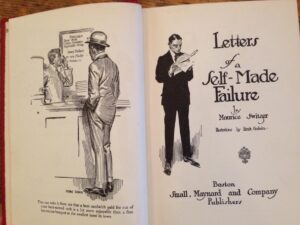![Source: Ministry of Defense [sic] of Ukraine. Creative Commons Attribution-Share Alike 2.0 Generic license.](https://upload.wikimedia.org/wikipedia/commons/thumb/9/9c/Anti-terrorist_operation_in_eastern_Ukraine_%28War_Ukraine%29_%2827843153986%29.jpg/512px-Anti-terrorist_operation_in_eastern_Ukraine_%28War_Ukraine%29_%2827843153986%29.jpg)
When Matt Gaetz is right (which really isn’t very often), he’s right.
If two authoritarian regimes — and make no mistake, Volodymyr Zelenskyy’s gang has proven itself just as violent and authoritarian as Vladimir Putin’s — want to fight, there’s not much the supposedly “democratic” US regime can or should do to stop them. Not our circus. Not our monkeys.
The resolution notes, at length, the financial and military aid the US government has delivered, or pledged to deliver, to Ukraine. Every dime of that money comes out of Americans’ pockets, either through taxation or as a future extortion demand to pay off new debt.
Every bullet, bomb, artillery shell, and rocket delivered or pledged is explicitly intended to inflict violent death on men and women most of whom almost certainly would rather not be where they are or doing what they’re doing. And every bullet, bomb, artillery shell, and rocket delivered or pledged has a non-trivial chance of inflicting violent death on innocent civilian non-combatants.
The resolution does cite one, and only one, positive effect of US military aid to Ukraine: It has “severely depleted United States stockpiles, weakening United States readiness in the event of” the US government deciding to go inflict violent death on other, future battlefields.
Even assuming a “legitimate defense” function for government — which is sort of like believing the guy mugging you on the street might help you out if a second mugger shows up — those stockpiles could be “depleted” by 90% without impeding such a “legitimate” function, as it would still leave the US regime well-equipped to fend off any likely threat to you (or, more to the point, its own power), as opposed to “going abroad in search of monsters to destroy.” But hey, baby steps, right?
I don’t have to like Gaetz or the resolution’s other sponsors to know that it should (ideally, minus “urging” other regimes to do anything) pass the House faster than beer through a college freshman on his first pub crawl. It won’t, but should.
I don’t often suggest that my readers contact their supposed representatives in Congress, but this is one of those times. You can do it via USA.gov. If nothing else, putting a politician on the spot concerning this resolution may help you discover whether he or she is careless with, or careful of, other people’s lives and money. You probably won’t like the answer, but it’s a good thing to know.
Thomas L. Knapp (Twitter: @thomaslknapp) is director and senior news analyst at the William Lloyd Garrison Center for Libertarian Advocacy Journalism (thegarrisoncenter.org). He lives and works in north central Florida.
PUBLICATION/CITATION HISTORY


